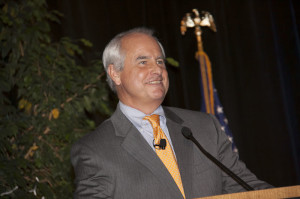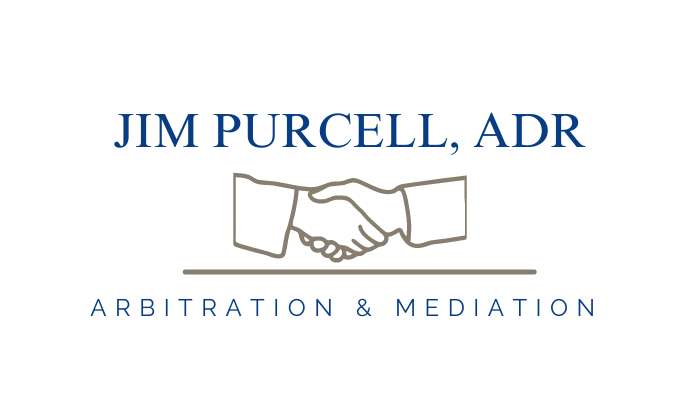 Jim has lived through litigation, trials, arbitrations, mediations, and facilitations both as counsel and client. He’s felt the stress as counsel of waiting for a judge or jury to decide his case, worrying that they never got it or understood the nuances. As client, he’s suffered through ADR proceedings led by mediators or arbitrators with little industry knowledge and who placed unreasonable demands on counsel, resulting in unpleasant surprises.
Jim has lived through litigation, trials, arbitrations, mediations, and facilitations both as counsel and client. He’s felt the stress as counsel of waiting for a judge or jury to decide his case, worrying that they never got it or understood the nuances. As client, he’s suffered through ADR proceedings led by mediators or arbitrators with little industry knowledge and who placed unreasonable demands on counsel, resulting in unpleasant surprises.
That simply is not fair to counsel or the parties.
Resolution of healthcare disputes require an ADR practitioner who understands the delicacy of healthcare relationships and the primacy of ongoing agreements between payors and providers, or other healthcare participants, who must continue to do business with each other after disputes have reached conclusion. The same is true of many other industries.
No Surprises
Almost no one in healthcare or any other industry wants their dispute to be “above the fold” in the news. At least they should not, given what usually ensues.
Jim draws from his inside understanding of all sides of healthcare disputes ensuring speedy, less expensive, and confidential resolutions while avoiding nasty, expensive contract negotiation battles between healthcare participants which come at a tremendous cost to all parties.
Jim balances payor priorities (affordability, fair reimbursement, and competitive positioning) with those of healthcare providers (hospital systems in particular) around reform, integrated delivery, Medicare and Medicaid shortfalls, uncompensated care, free standing competition, and the environment.
And he respects the medical profession deeply, as can be confirmed by calling virtually anyone in the RI healthcare provider community.
Jim takes the “no surprises” label seriously. He does not want anyone unduly embarrassed at mediations and he realizes that counsel must have the appearance and reality of knowing what is going to happen procedurally. No surprises. He’s been counsel in very serious matters, and knows how delicate the relationship with the client can be, particularly in a mediation where the focus is on settlement rather than total victory at any cost.
Pre-meeting mediation preparation
Counsel and the parties need a proactive ADR practitioner who spends time in advance ensuring that counsel understand exactly how the matter will proceed… and what the mediator expects. Jim will have several telephone conferences in advance to gain insights, some with all involved and some ex parte. He will use a Mediation Agreement which outlines all the details. He WILL come prepared.
In short, when parties are informed and prepared, there are few surprises, and resolution is more likely.
Jim actively moves parties toward resolution. He expects client representatives to have full authority to settle, or to make clear at the outset whether subsequent ratification by a board or committee is required. For example, he expects departing flight schedules be disclosed in advance and that parties arrive ready to bargain in good faith toward resolution.
This requires hard work and persistence by all. But it’s worth it.
Respect for counsel and clients
In legal disputes, counsel naturally want to act zealously on their clients’ behalf. However, mediation/facilitation requires a softer approach by counsel and by all involved. Hyper aggressiveness is unhelpful in facilitation and mediation where success is redefined as an acceptable settlement–not total victory.
Jim understands that mediation/facilitation places counsel in a sometimes delicate position vis a vis their clients. As a former attorney, Jim is skilled at toning down rhetoric and creating an atmosphere conducive to settlement. Jim takes time to understand the parties, including their history, personalities, and hot spots thereby laying the groundwork conducive to resolution.
It’s not to win, it’s to settle
It’s different today. At the outset of all mediations, Jim helps clients understand that counsel may act differently during the session (i.e., less aggressively), and that it is in the client’s best interests to do so. Insults and arrogance rarely breed resolution. And the reality is that good settlements usually mean that all parties leave the table slightly disappointed in the outcome, but having saved money, time, anguish, and uncertainty.
